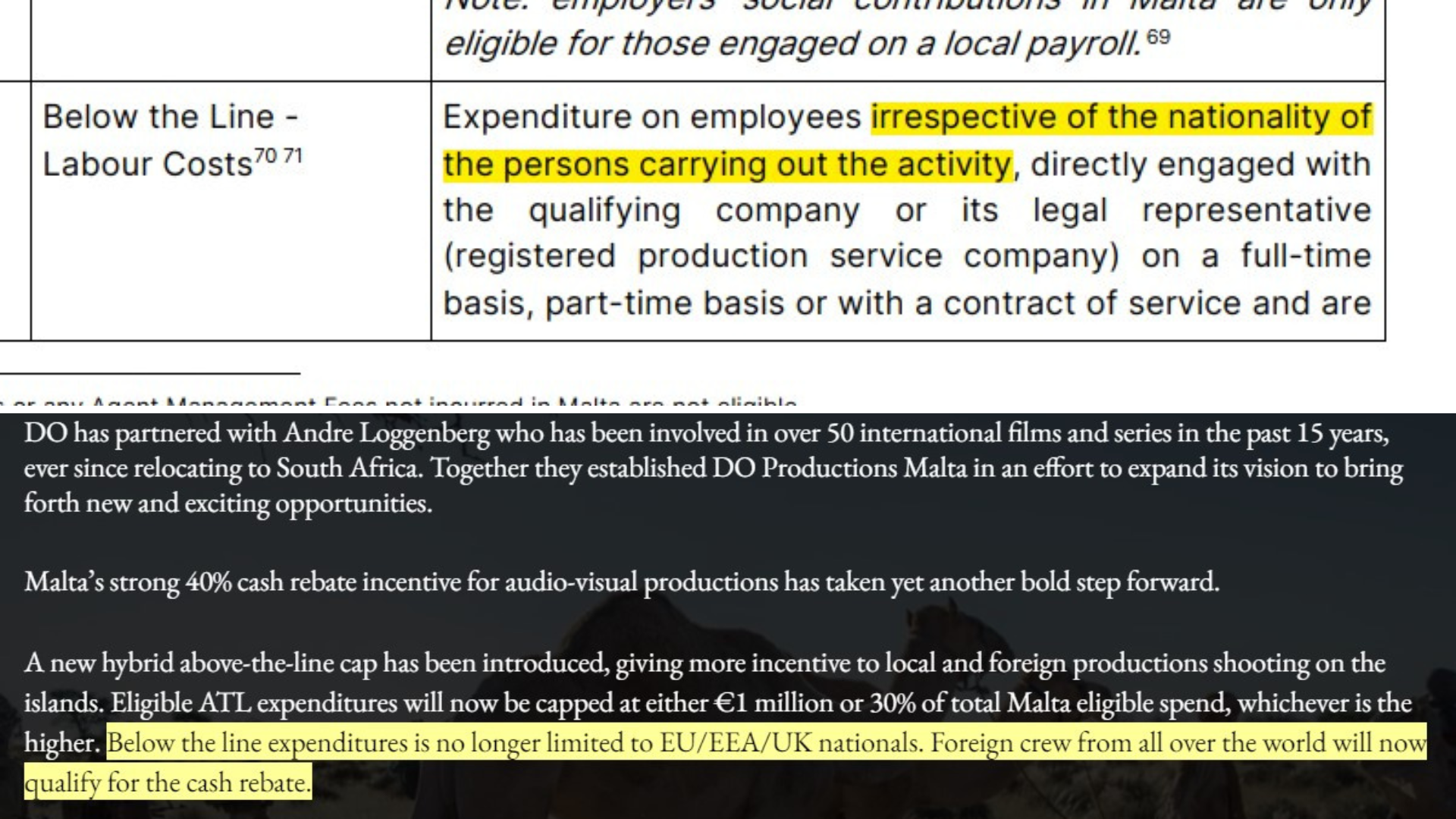The Malta Film Commission’s 40% cash rebate scheme for film productions covers expenses that are in excess of funds already spent in our country, contrary to what Film Commissioner Johann Grech said in a video posted on social media on Friday.
The official list of qualifying expenditures for the film rebate scheme includes cash back on air travel expenses, crews’ salaries irrespective of nationality, equipment, including that which is sourced outside of Malta, and other ancillary spending outside of Malta.
The rebate’s rules have been recently expanded as part of an exercise to render Malta more attractive to large foreign film productions.
In the video addressed to local film crew and film production companies, Grech said “insensitive” critics were “attacking the stability of the film industry” calling it “an attack on our country”.
Last Sunday, The Times reported how €47 million of taxpayer funds have been committed to the Gladiator sequel as part of the 40% cash rebate scheme. Freedom of Information requests from The Shift asking for cost breakdowns of the estimated expenditure were rejected by the Film Commission.
The list of expenses qualifying for a rebate was expanded from last year. It now includes cast and crew salaries and expenses for crew members “irrespective of their nationality”, further disincentivising the employment of local professionals.
The scheme also allows rebates on expenditure on local accommodation, which film industry sources told The Shift, “Are the only real and clear winners from the scheme.” It boosts occupancy at hotels and other tourist accommodation – the bread and butter of Clayton Bartolo’s Tourism Ministry, of which the Film Commission forms part.
Expenditure on air travel and equipment rentals and services from any European Economic Area or UK country are also eligible for rebates.
Part of the eligibility criteria outlined for the rebate scheme is for foreign production companies to engage locally-registered production service companies to act as coordinators.
Sources in the film industry have told The Shift that it is now common practice for foreign production companies to set up companies in Malta staffed by foreign personnel to fulfil the requirement of being a local service company – sidestepping any positive effects the scheme might have for locals.
Examples include South African company DO Productions, which registered a subsidiary in Malta in November 2021. Its website praises updates to the rebate scheme, allowing third-country nationals to be employed as crew on productions. Previous iterations of the scheme limited eligible crew to European Economic Area and British citizens.

An excerpt from the list of qualifying expenses for the rebate scheme (above) and DO Productions’s website praising the rebate scheme’s expansion to include more foreign crew (below).
Sources also highlighted an issue in which foreign production houses apply for funding under Creative Malta, a separate fund intended solely for local productions. Examples include British filmmaker Matt Hookings, who produced Prizefighter but has now set up Camelot Media Ltd in Malta since June 2022 and has been made a beneficiary of the scheme’s funds.
The filmmakers who spoke to The Shift also raised questions about productions such as Gladiator 2’s entitlement to the full 40% of the cash rebate, given part of the rebate is contingent on the “maximisation of local resources” which the sources said is “incredibly difficult to pin down considering the multiple hundreds of crew working on these productions” and with qualification decisions being “non-transparent”.
They insists that expansion of the film rebate scheme to its current form “favours foreign productions and crew”, in a “vanity exercise” for Grech that often ends up sidelining locals.












